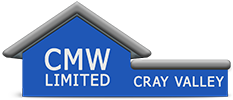
Introduction
Choosing suitable screws and fixings might seem like a trivial task, but it's crucial for the success of any construction or DIY project. Whether you're hanging a picture frame, building furniture, or undertaking a significant renovation, selecting the appropriate screws and fixings can mean the difference between a sturdy, long-lasting structure and one that's prone to failure. In this guide, we'll explore the essential features to consider when selecting screws and fixings to ensure your project's success.
Material
The material of the screw and fixing is paramount to its performance and longevity. Common materials include stainless steel, carbon steel, brass, and nylon. Stainless steel screws are highly resistant to corrosion and are suitable for outdoor applications or areas exposed to moisture. Carbon steel screws are solid and economical but may rust if not coated. Brass screws are corrosion-resistant and aesthetically pleasing, making them ideal for decorative purposes. Nylon screws are non-conductive and lightweight, suitable for electrical applications.
Head Type
The head of the screw determines how it will be driven and its appearance once installed. Common head types include flat head, pan head, round head, and countersunk head. Flathead screws sit flush with the surface when installed and are ideal for applications where a smooth finish is desired. Pan head screws have a rounded top and are suitable for general-purpose fastening. Round head screws have a semi-circular top and provide a decorative finish. Countersunk screws have a tapered head designed to sit flush with the surface when driven into a countersunk hole.
Drive Type
The drive type refers to the mechanism used to turn the screw. Common drive types include Phillips, slotted, hex, Torx, and square. Phillips screws have a cross-shaped recess and are widely used in general applications. Slotted screws have a single straight slot and are easy to drive but prone to slipping. Hex screws have a hexagonal socket and provide increased torque and reduced slippage. Torx screws have a star-shaped recess and are prevalent in automotive and electronics industries for their high torque capabilities. Square screws have a square-shaped recess and provide excellent grip and torque transmission.
Size and Length
Selecting the right size and length of screws is crucial for ensuring proper fastening. The size refers to the diameter of the screw, while the length refers to how deep it penetrates the material. Using screws that are too small may result in inadequate holding strength, while screws that are too long can cause damage or protrude from the surface. It's essential to match the screw size and length to the thickness of the materials being fastened.
Thread Type
The thread type of the screw determines how it engages with the material and provides holding strength. Common thread types include coarse thread and fine thread. Coarse thread screws have larger, spaced-out threads and are suitable for soft materials like wood or plastic. Fine thread screws have smaller, closely spaced threads and provide increased holding strength in more complex materials like metal.
Corrosion Resistance
For outdoor or high-moisture applications, selecting screws with corrosion-resistant coatings or materials is essential to prevent rust and degradation over time. Stainless steel screws are the most corrosion-resistant option, followed by brass and galvanized steel. It's crucial to consider the environmental conditions in which the screws will be used and choose accordingly to ensure long-term durability.
FAQs
What factors should I consider when choosing screws and fixings?
When selecting screws and fixings, consider factors such as material, head type, drive type, size and length, thread type, and corrosion resistance to ensure optimal performance and longevity.
Which material is best for screws and fixings?
The best material depends on the application. Stainless steel is highly corrosion-resistant, making it suitable for outdoor use. Carbon steel is economical and robust, while brass is corrosion-resistant and aesthetically pleasing.
What is the difference between coarse thread and fine thread screws?
Coarse thread screws have larger, spaced-out threads and are suitable for softer materials like wood. Fine thread screws have smaller, closely spaced threads and provide increased holding strength in more complex materials like metal.
How do I determine the appropriate size and length of screws for my project?
Match the screw size and length to the thickness of the materials being fastened. Using screws that are too small may result in inadequate holding strength, while screws that are too long can cause damage or protrude from the surface.
How can I ensure the longevity of screws and fixings in outdoor applications?
For outdoor or high-moisture applications, choose screws with corrosion-resistant coatings or materials such as stainless steel or galvanized steel. Additionally, consider using weatherproof sealants or coatings to protect the screws from the elements.
Conclusion
Choosing suitable screws and fixings is a critical step in ensuring the success and longevity of any construction or DIY project. By considering factors such as material, head type, drive type, size and length, thread type, and corrosion resistance, you can select screws and fixings that are suitable for your specific application. Taking the time to make informed decisions during the selection process will ultimately result in a sturdy, reliable structure that stands the test of time.
If you want to take a closer look at our range of screws and fixings, click here. If you want to contact or find out more about this blog posts author, Dave click here.
